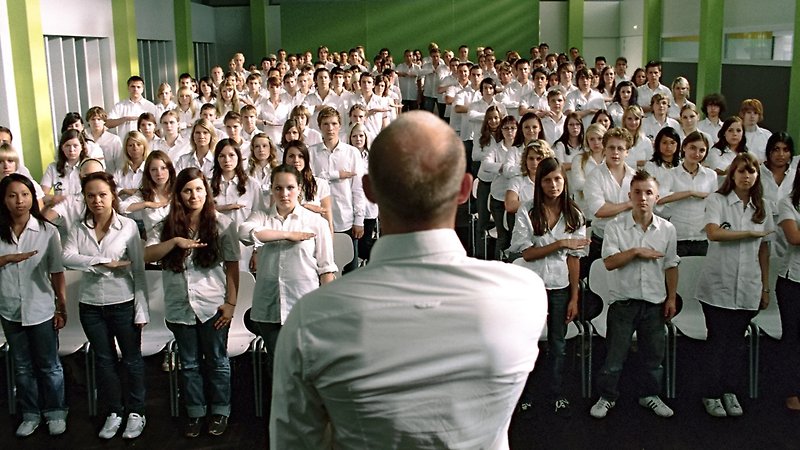This cautionary tale set in a German high school outlines how fascism starts and takes hold – quickly leading to violence and devastation. "Seductive and horrifying." — Hollywood Reporter

An energetic, gripping drama that cuts through superficial ideological interrogatives and goes straight for the veins.
Screened as part of NZIFF 2008
The Wave 2008
Die Welle
This cautionary tale about the seductive power of fascism opens with a rush of energy and doesn’t let up. Based on a real experiment which took place in 1960s California, the film transposes events to a modern-day German high school, where charismatic teacher Rainer Wenger hastily devises a class assignment in autocracy. This is project week, and though Wenger, an ageing hipster with unconventional teaching methods, would rather be teaching anarchy, he prepares enthusiastically to teach the opposite. When his students won’t engage with the topic – “The Nazis sucked. We get it”, they moan, with believable antipathy – Wenger styles himself as a Führer and devises a set of social rules to give them a taste of life under a dictatorship. Those who belong to “The Wave” wear uniforms, adopt a secret salute and subscribe to an ideology of superiority. Those who don’t are outcasts. To Wenger’s surprise, “The Wave” takes off in a big way. What follows is a textbook case of how fascism starts and takes hold – and how it can very quickly lead to violence and devastation. — BZ
“Seductive and horrifying at the same time, it suggests that anything is possible in today’s unstable environment. An assured piece of filmmaking by Dennis Gansel, The Wave captures the intoxicating power of conformity… Although the original Third Wave experiment in a Palo Alto high school did not end this way in 1967, Gansel has updated the climax to what could and has happened in schools today. There is something additionally chilling about seeing it take place in Germany. But as the film makes abundantly clear, the roots of fascism grow everywhere.” — James Greenberg, Hollywood Reporter